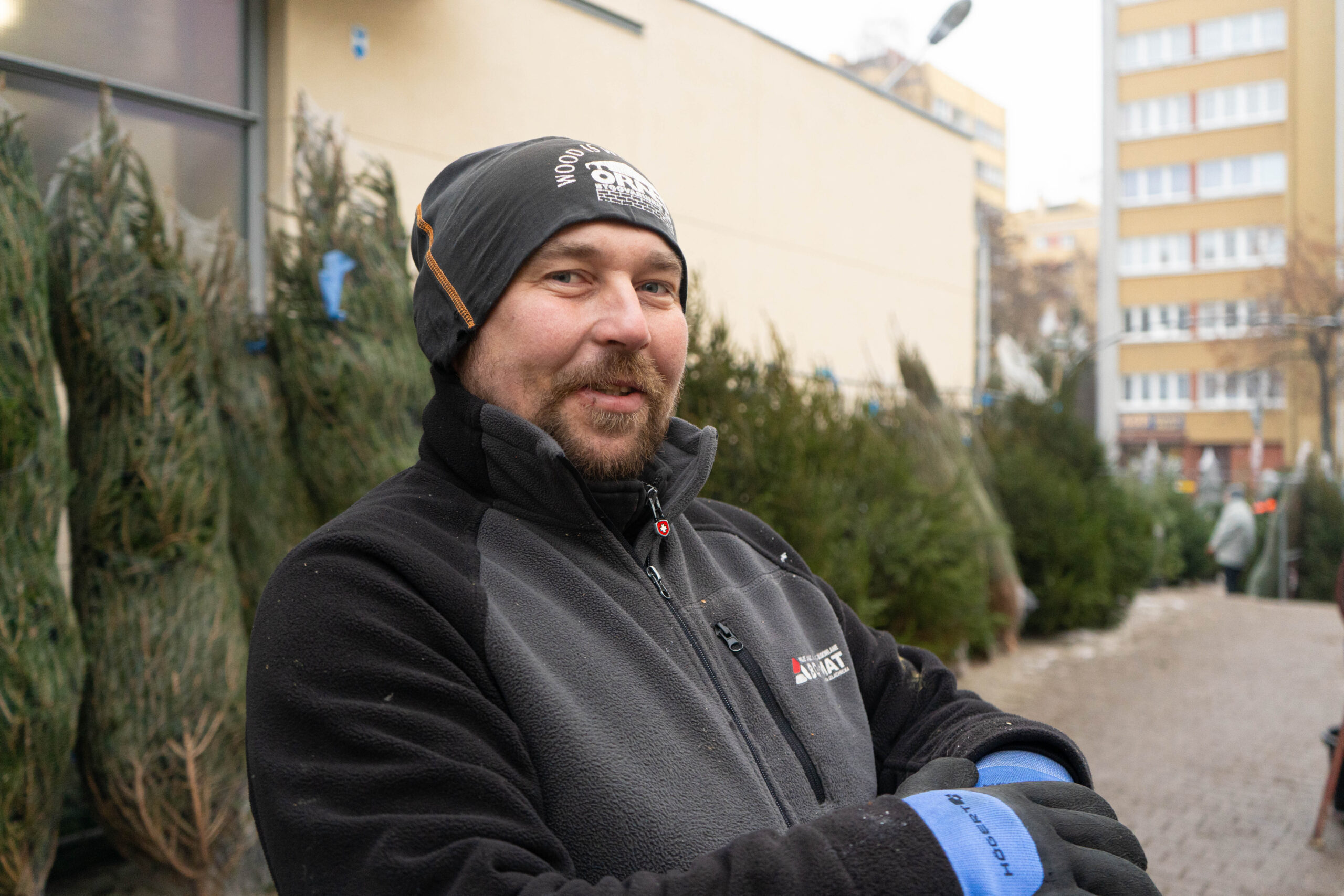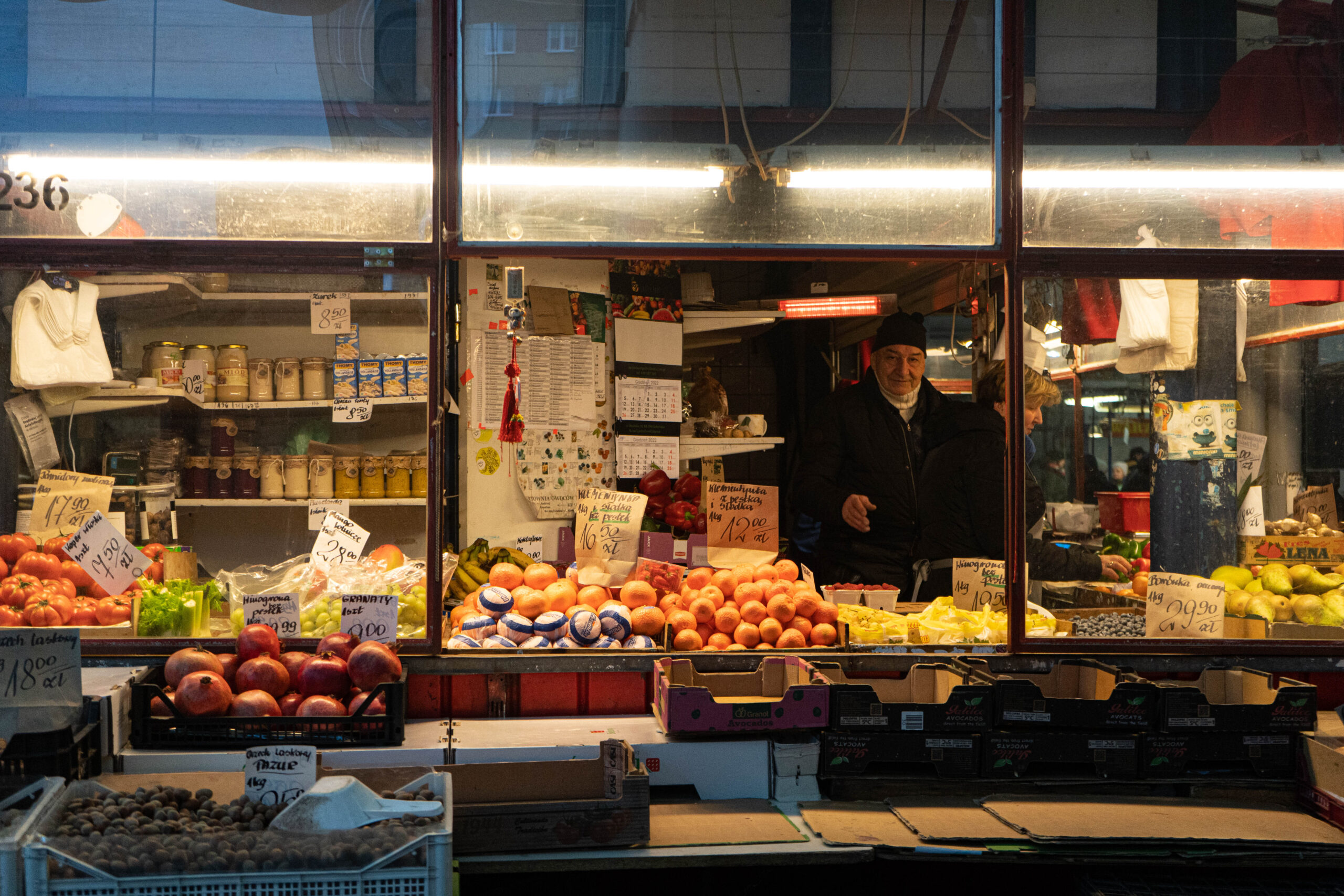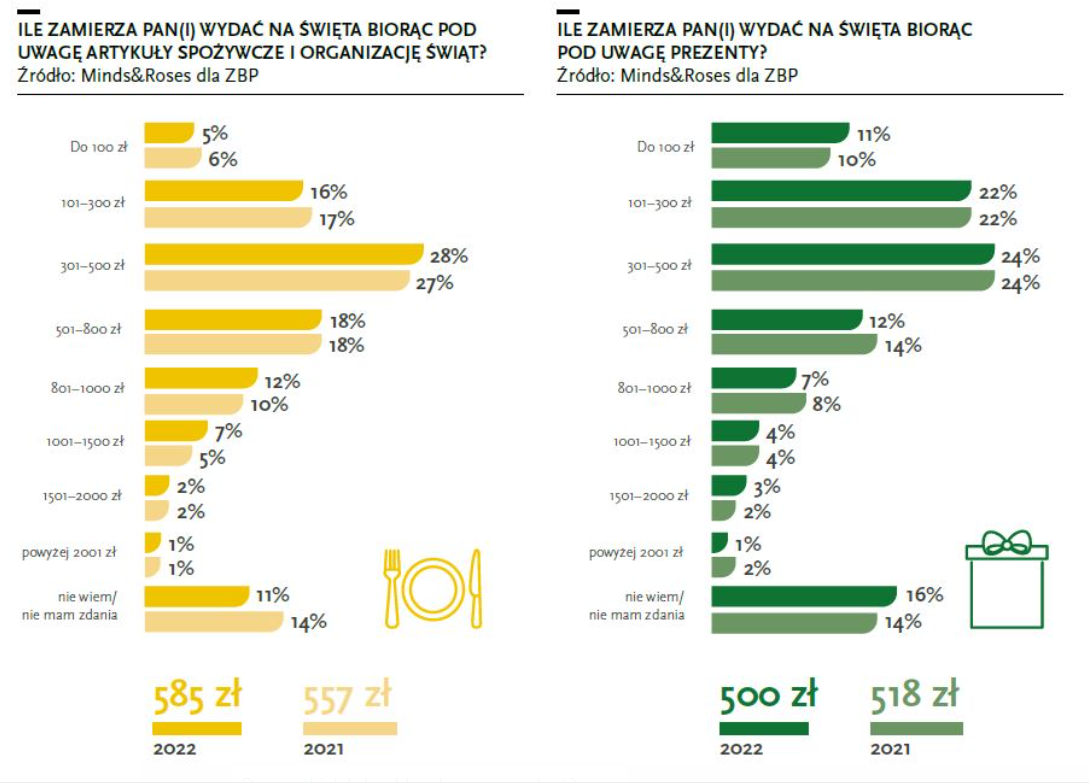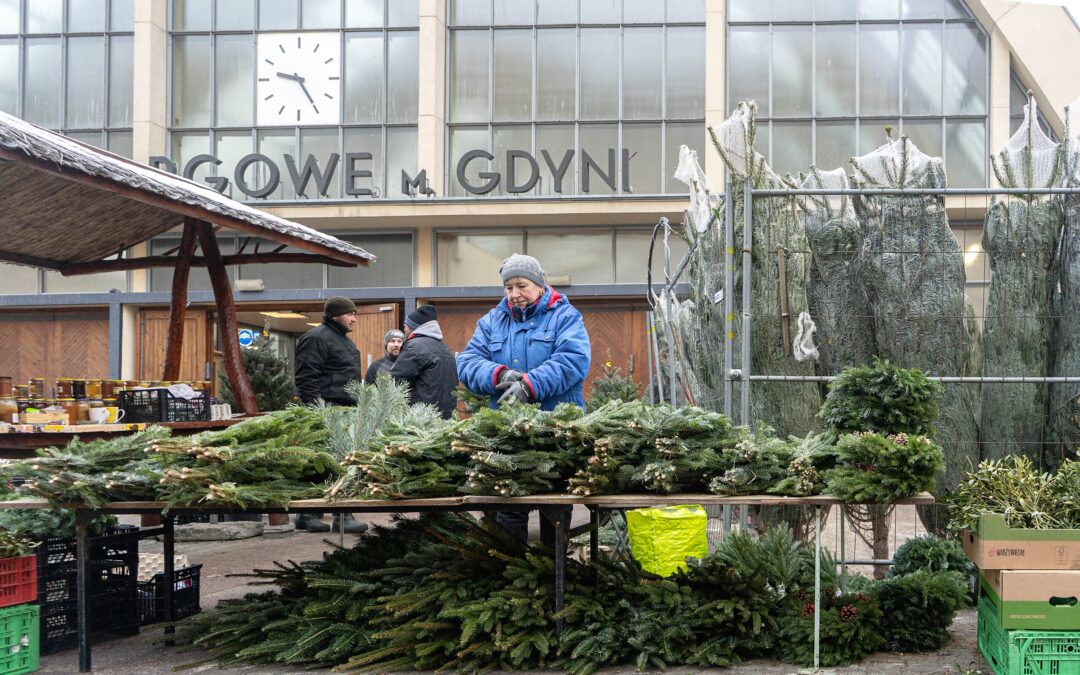By Alicja Ptak
Marcin Dawidowski, co-owner of a business selling Christmas trees in the market halls of Gdynia, a city on Poland’s northern Baltic coast, is facing his worst-ever season as inflation, currently running at over 17%, remains at a 25-year high and Poles seek savings over the holidays.
“Sales have fallen dramatically, by a little under a half,” says Dawidowski, who has been in the Christmas tree business for eight years.
“People are now buying individual branches rather than whole Christmas trees, and…if they do buy trees, they opt for smaller ones… But what can I do. You have to keep going.”

Marcin Dawidowski in front of the Christmas tree stands in Gdynia market halls
Nearby, Katarzyna, who is selling Polish Christmas essentials such as mushrooms, hay and dried fruit, has also noticed a dramatic fall in sales. She has been selling in the market halls for over 20 years and, despite amassing many loyal customers, she has still seen her business struggle this Christmas.
“[Sales] are at least 60% weaker,” says Katarzyna. As for herself, she admits that stubbornly high inflation has already chipped away at her standard of living and will impact her traditional Christmas Eve celebrations, known as wigilia in Polish and arguably the most important holiday of the year for Poles.
“Christmas Eve will be more modest this year because it has to be,” she says.

A small business owner in his booth at Gdynia market halls
She plans to forgo the central dish of the Polish Christmas eve supper, carp, and replace it with trout. Last year, a kilogram of skinless carp fillet cost 45 zloty (€9.60); this year it is nearly 70 zlotys (€15) a kilo in major supermarkets. Meanwhile, trout costs around 30 zloty (€6.40) a kilo.
“When there are four people in the house, everyone wants to eat at least a little bit, so we can’t afford as many dishes,” said Katarzyna.
All business owners interviewed by Notes from Poland in Gdynia reported that sales had dropped significantly. However, while some blamed inflation alone, others also pointed to this year’s particularly cold temperatures, which have discouraged shoppers from leaving their homes.
In October this year, inflation reached 17.9%, its highest rate since 1996. The figure fell to 17.4% in November – slowing for the first time since February – but that still remains a level unseen since the 1990s
Prices have grown faster than wages in Poland for five out of the last six months, new official data show.
In October, the average wage (which is calculated from enterprises employing 10+ people) rose 13% year-on-year while annual inflation hit 17.9% pic.twitter.com/xHgUxk9Pwz
— Notes from Poland 🇵🇱 (@notesfrompoland) November 22, 2022
Moreover, Poles are aware that inflation is predicted to rise again in the new year.
Piotr Bartkiewicz, an economist with Pekao SA bank, expects a peak of around 21% in February, after some of the anti-inflation measures introduced by the government this year, most notably 0% VAT tax on fuel, are withdrawn.
“We know from the past that Christmas spending is subject to the same laws and factors as regular spending. And these do currently slow down our consumption a lot and will probably also contribute to a reduction in consumption around Christmas,” says Bartkiewicz.
According to estimates published by the Association of Polish Banks (ZBP) and Provident, a lender, the average Pole will spend between 1,259 zloty (€268.5) and 1,427 zloty (€304.3) on Christmas this year. That is between 1% and 30% more than last year, thanks to inflation
However, the data also show that Poles are looking to make savings where they can. The ZBP study found that the average Pole will spend 585 zloty (€125) on food this Christmas, 28 zloty more than a year before. But they plan to save on gifts, with an average person planning to spend 500 zloty (€107), 18 zloty less than in 2021.
Despite spending more on food, they are also likely to get less for their zloty.
“Figuratively speaking, if all of last year’s budget for groceries was spent on preparing [the traditional] 12 Christmas Eve dishes, this year we would only be able to afford 10, or maybe even nine,” said Jacek Gieorgica, a ZBP expert.

The chart shows the range of spending Poles are planning for Christmas this year compared to last year. Left: How much do you intend to spend on groceries this Christmas? Right: How much do you intend to spend on gifts this Christmas? Source: Minds&Roses research agency for ZBP
The association found that 73% of Poles intend to cut spending due to the economic situation and the biggest share of them, 45%, plan to cut their spending on gifts the most.
“I won’t save on my wife but we will spend less on grandchildren,” says 67-year-old Roman, who is buying Christmas decorations at the Gdynia market. He and his wife, Dorota, plan to spend 300 zloty on each of their two grandchildren, 200 zloty less than a year before.
“And we have already spent around 30% more than a year before,” he said, referring to other expenses.
Dorota, 65, adds that they will celebrate this Christmas eve supper as they always would. But “afterwards we’ll tighten our belts”.
All photos belong to the author of the article.

Alicja Ptak is deputy editor-in-chief of Notes from Poland and a multimedia journalist. She has written for Clean Energy Wire and The Times, and she hosts her own podcast, The Warsaw Wire, on Poland’s economy and energy sector. She previously worked for Reuters.




















